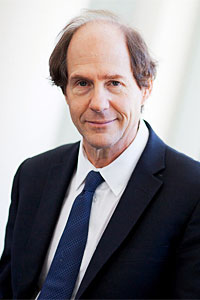This week, Pope Francis is expected to implore both the US Congress and the UN General Assembly to take aggressive steps to curb greenhouse-gas emissions. His thinking on this issue is not simple alarm over climate change. It involves an extraordinary combination of passionate environmentalism, concern for the poor, scepticism about economics and apparent hostility to "profits". All this makes for an impressive but occasionally awkward argument.
In his recent book-length encyclical on the subject, Pope Francis seeks to link three seemingly unrelated problems: environmental degradation, poverty and spiritual emptiness. He wants to "replace consumption with sacrifice, greed with generosity, wastefulness with a spirit of sharing". Time and again, he points to "consumerism" as a major source of the world's problems.
Humans are endangering the planet as a result of "a period of irrational confidence in progress and human abilities", the Pope says. Dirty air produces millions of early deaths. Our "throwaway society" fouls our waters and produces more waste than we can handle. Limiting climate change requires "changes of lifestyle, production and consumption".
For poor people who are already struggling, Pope Francis shows, a warmer climate will make things far worse. While climate change threatens all nations, developing countries are at special risk, not least because they depend on agriculture, fishing and forestry, all of which are threatened by rising temperatures. In the encyclical, the word "poor" appears 61 times.
At this point, you might expect that he would explore the difficult trade-offs that leaders of developing nations -- including China, India and Brazil -- face. They have been working to reduce poverty through rapid economic growth, and that takes more energy, not less. For what they see as moral reasons, these leaders prioritise growth, not reductions in carbon emissions. Can poor nations -- or, for that matter, rich ones -- be expected to bear the costs of significantly scaling back?
That's mostly an economic question, but Pope Francis seems sceptical about how much economists can help. In the face of environmental risks, he insists that we "reject a magical conception of the market, which would suggest that problems can be solved simply by an increase in the profits of companies or individuals".
Fair enough. But economists don't favour such a magical conception. They believe that the best way to reduce pollution, including greenhouse-gas emissions, is to require people to "internalise" the environmental costs -- for example, through carbon taxes.
Pope Francis is not enthusiastic about carbon taxes, because they would impose serious costs on poor nations, perpetrating an injustice "under the guise of protecting the environment".
For similar reasons, he disapproves of buying and selling "carbon credits" -- a system of cap and trade, another idea that economists like. He objects that it wouldn't "allow for the radical change which present circumstances require", and might turn out to be "a ploy which permits maintaining the excessive consumption of some countries and sectors".
Instead, the Pope argues, there is an "urgent need for us to move forward in a bold cultural revolution". Really? If so, how can we get there?
The great University of Chicago law professor Karl Llewellyn is reported to have said, "Technique without morals is a menace; but morals without technique is a mess."
At their best, economists are excellent technicians. They tell us how to achieve our preferred goals. And in so doing, they also turn out to be pretty decent moralists.
Lifting people out of poverty is a moral imperative. If economists can help us find an efficient way to address environmental problems, including climate change, we will minimise adverse effects on growth, which is our best way to reduce poverty and boost employment. Growth is often driven by "consumerism", which should not be treated as an evil.
It's true that any carbon tax or system of cap and trade would have to be tailored to national circumstances. A poor nation might not be able to handle a tax as high as one that would work well in France or Germany.
But pleas for "a bold cultural revolution" are unlikely to persuade leaders of the world's nations to join such an agreement. What's needed is a demonstration that emissions limits really are in the interest of their people.
No one should question the encyclical's extraordinary moral clarity and powerful conviction. But with respect to technique, it's a bit messy. ©2015 Bloomberg View
Cass R Sunstein, the former administrator of the White House Office of Information and Regulatory Affairs, is the Robert Walmsley university professor at Harvard Law School and a Bloomberg View columnist.
